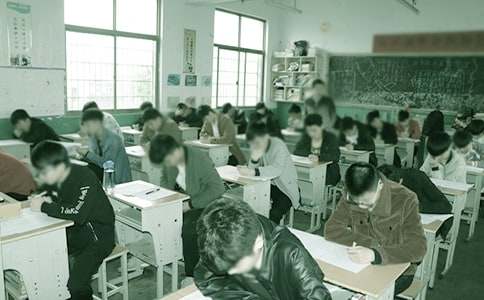- 相关推荐
公共英语二级听力考试解题技巧
公共英语考查的能力建立在“交际语言行为模式”上,重点考查考生的交际能力。各个级别标准均从级别描述、语言知识(含语法知识和词汇)和语言运用(含互动能力、接受能力和产出能力)三个方面定位。下面,小编为大家搜索整理了公共英语二级听力考试解题技巧,希望能给大家带来帮助!更多内容请及时关注我们应届毕业生考试网!

1.简短对话解题技巧:简短对话,在多数情况下,往往能从录音材料中找到与选择项相同的部分,但我们更要注意通过对这个对话的整体理解,正确选择答案。平时在训练中,有意识地加强这方面的训练,特别是对数字类题目的敏感训练、细节信息的短时记忆能力训练和语句推导能力训练。能有意识的在纸上记录一些信息。解答题目时,先看题目。后在听录音材料中,对题目中出现的解答选项有重点的听和识别,注意区分开一些干扰内容和选项。
经典例题:
M: Excuse me, Mrs. Sharp, can I borrow some money from you? I need them for buying the toy to my son.
W: Well, you are a good Daddy.
Q: What can we learn from the dialogue?
[A] Mrs. Sharp won’t borrow some money to the man.
[B] The man isn’t a good father.
[C] The man will buy a toy to his son.
名师精解:考生可以从录音材料中找到与选项相同的部分“buy the toy to my son.”但通过对整个对话的整体理解。我们知道是男士为了想给儿子买玩具而向这个女士借钱。因此,女士会说“你真是个好爸爸。”所以答案为[C]。
经典例题:
M: The concert begins at 8:30. Let’s hurry.
W: We still have 45 minutes. How do we go there?
Q: What’s the time now?
[A] 9:15 [B] 8:15 [C] 7:45
名师精解:数字类题目要求考生一要记清楚对话中数字所代表的内容,并且能进行简单的推理。本题中提到音乐会在8:30开始,我们还有45分钟时间。因此哪个时间相互相减,就得到了答案为[C]。
经典例题:
W: Did you ring me up yesterday evening?
M: Yes, I wanted you to come over and meet my cousin who has just come from the United States, but your mother said that you were at evening classes.
Q: Who answered the phone call?
[A] The woman [B] The man’s cousin [C] The woman’s mother
名师精解:对话中“your mother said that you were at evening classes.”说明了昨天,接到电话的人是对话中妇女的母亲。而之前的一些信息“Did you ring me up yesterday evening?”正提示了这位男说话者昨天打过电话。故[A] [B]两选项都是起到干扰作用的选项。
2.较长对话解题技巧:较长对话,一般为男女相互四次或以上来回的对话。这部分录音材料读两次。在听录音前,考生应通过提前阅读题目的提问和解答,了解这个较长对话大体内容和做题重点。在第一次听录音中,全神贯注,边听边记录一些要点和关键词,了解对话大意。有时对非常有把握的题目可以马上给出答案。在第二次听录音中,以全篇对话的角度,集中精神对一些有难度的题目做出解答。
在解答一些大意和推导题目时,平时可以通过做这类阅读理解题目,提高自己全面着眼地做题目的能力和自己推断的能力。解答题目中,一般把这类题目留在最后解决,仔细比较各个选择项的区别,思考各个答案选项的推断依据,根据自己所记录的notes和全文角度做答.
经典例题:
M: Hi, Lilan
W: Hi, Wang Ming. Haven’t seen you for ages. Any news?
M: I’m going to do a business course when I leave school.
W: Are you? Very glad to hear it. Then what are you going to do when finish?
M: Oh, I shall go back to Beijing to practice there.
W: That’s a good idea. You know there are more opportunities for business there than Shijiazhuan. And English is very useful in the job.
M: Yes, I think it’ll be very useful in many ways.
W: Besides, Beijing is an international trade centre. English is used almost everywhere.
M: Then I’ll be a very promising businessman there.
Q: 1. What is the man’s plan for his future?
[A] Take a business course in Beijing
[B] Learn some English in Beijing
[C] Do some Business in Beijing.
2. What can you tell about the man?
[A] He used to live in Beijing
[B] He used to live in Shijiazhuan
[C] He used to live in Shanghai
3. What do the two speakers agree to?
[A] Going to the evening school
[B] Improving their English
[C] Practising business
名师精解:对话中 “W: Hi, Jack. Haven’t seen you for ages. Any news? (嘿,杰克。好久不见了,你怎么样了?) M: I’m going to do a business course when I leave school.(在毕业后我打算去读商务课程.)”但紧接着,“W: Then what are you going to do when finish?”(但你学完学业后,你打算做什么呢?)M: Oh, I shall go back to Beijing to practice there.(哦。我会回到北京拓展我的事业。)这说明第1题这个男人的将来计划最终还是在北京进行商务活动。这道题目就从听力材料中直接选择获得,较容易,答案选择[C]。而题目2和题目3就要求考生通过理解全文,才能获得答案。从题目2的题干看,题目设计者考查点落在:Where did the man use to live? 而听力原文中只提及过两个地点:Beijing和Shijiazhuan。因此,Shanghai则一定是错误的。而原文中 “I shall go back to Beijing to practice there”。go back则为重点。但一般考生在第一次听时,却很容易忽略这个关键词汇。所以在回答该题时,就要在第二次听中特别关注地名。则较易得出结论,答案为[A]。第3题则是对全文的一个总结。对话多次提及英语的重要作用。①W: And English is very useful in the job. M: Yes, I think it’ll be very useful in many ways.②W: English is used almost everywhere.因而,What do the two speakers agree to? 答案为[B],其余[A] [C]为干扰项。